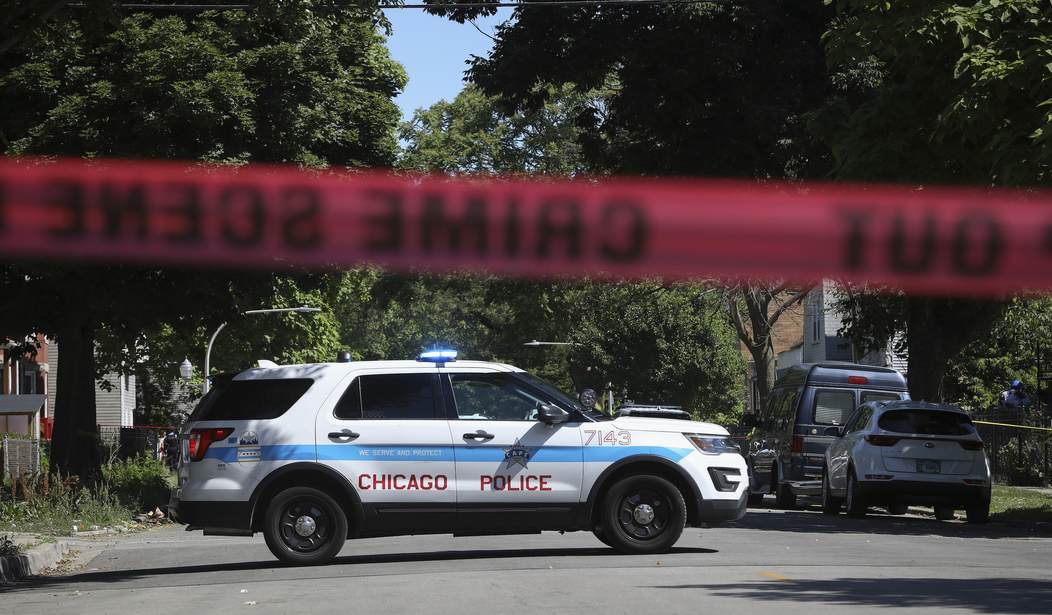University of Chicago economist Jens Ludwig is an interesting figure in the gun control/Second Amendment debate. I've seen no evidence that Ludwig is opposed in theory to things like "assault weapon" bans, restrictive carry laws, or even bans on gun ownership altogether In fact, Ludwig has stated that "if there was a way to somehow get rid of the 400 million guns we have in the U.S. (a country of 330 million people), on balance, things would get substantially safer."
But from a pragmatic perspective, Ludwig acknowledges that guns aren't going anywhere. Even more importantly, he recognizes that the real issue is violence, not gun ownership. And in a new op-ed, Ludwig lays out a couple of simple and (almost) cost-free strategies that he says could make a serious dent in gun-involved crime.
The conventional wisdom of both left and right has fundamentally misunderstood the problem. Gun violence is not primarily a problem of incentives. Most shootings are not premeditated or motivated by economic considerations. Instead, most shootings are arguments that go sideways and end in tragedy because someone’s got a gun. And there are lots of cheap — even free —ways to prevent the predictable mistakes people make in those difficult situations.
Now, to be completely accurate, most shootings aren't arguments that go sideways. They're actually incidents of self-harm; someone using a gun to take their own life. But when it comes to interpersonal violence, I think Ludwig is generally right, though the beefs that lead to blood being spilled can stem from a variety of sources.
So, Ludwig's primary suggestion is teaching people how to make better decisions, or to make decisions with their head and not their heart. The economist claims that when this has been done with teens at the Cook County Juvenile Temporary Detention Center, recidivism rates fell by 20 percent.
Why aren’t we doing that in every carceral facility in the country? Why aren’t we carving out a few weeks in every high school health class to deliver this sort of program to everyone? The leading causes of death of U.S. teens are homicide, suicide, car crashes, and drug overdose. What do these have in common? These are deaths by decision-making.
Again, I think Ludwig is oversimplifying things a bit. I'd argue that suicidal ideation will often not involve rational decision-making, and the same is arguably true of drug addicts who overdose. Still, I don't think most gun owners (or gun control advocates) would object to teaching teens how to make better choices.
Ludwig says a second solution is "having older, more responsible people around to step in and interrupt conflicts before they escalate into tragedy." As he notes, plenty of cities are already doing that with "violence interrupters" or community violence intervention programs, but he says those programs need to be more specifically targeted; not just to those who are most likely to commit acts of violence, but to the times and places where that violence is most likely to happen.
For example, there’s a liquor store here on the South Side of Chicago that’s open until midnight, while every other closes no later than 10 p.m. Guess what happens between 10 p.m. and midnight when people from all over carrying all sorts of grudges show up in the same place? The data give us the answer: A spike in gun violence.
There is tremendous opportunity for cities to leverage data they already have to more efficiently allocate the resources they’re already paying for. One Chicago police commander told me a few years ago, that, in his words, officers were too often literally “patrolling randomly.” Rigorous research shows that using data to target resources can double the amount of crime prevention cities get from their existing spending — a huge win that costs cities practically nothing compared to the huge investments required by the “conventional wisdom.”
We've talked a lot about targeted deterrence here at Bearing Arms, and for good reason. Ludwig is right that targeting the small group of individuals who are most likely to commit violent crimes with both carrots and sticks is far more effective at preventing or reducing "gun violence" than hardware bans or restrictions on lawful gun owners.
Much of what Ludwig suggests is common sense, and shouldn't be objectionable to either Second Amendment advocates or gun control supporters. The problem is that most anti-gunners see the strategies that he promotes as something to do in addition to making it harder to exercise our right to keep and bear arms. Groups like Giffords and Everytown are all in favor of community violence intervention programs, but that doesn't stop them from trying to criminalize the exercise of a fundamental constitutional right.
If Ludwig believes that efforts aimed at reducing both legal and illegal gun ownership (as well as gun sales, gun manufacturing, access to ranges, etc.), are a dead end when it comes to public safety, he should come out and explicitly say so. As things stand, anti-gunners find it all too easy to pay lip service to Ludwig's proposals even as they double down on their philosophy of banning our way to safety.









